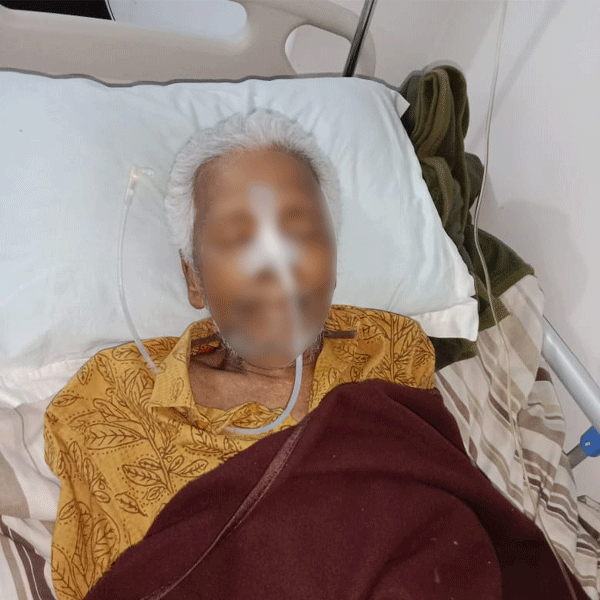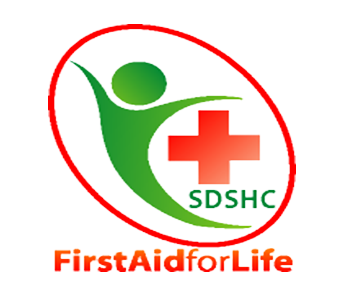Emergency Support for – ( IV Cannula Antibiotic – Injection / NG Tube)
We are Committed to
All Clients are Supervised Regularly
Regular Home Visits. Evaluation and monitoring integrated nurses progress. Revising update nursing care plan. 24/7 Phone Support.
Your Choice
Your care is completely determind by you. You determind the type of care, How it is delivered and who delivers it.
SUPPORT FOR YOU 24/7
Our tem are on-call 24/7, so we can help you when you need us the most.
LEVEL : 1 (RN)
Critical Care Nursing : Where require continuous vitals monitoring such as ICU, HDU, NICU, PICU, Neuro - ICU , Patients,. Which covers Tracheostomy (TT) care, Pressure Sore Intake Output, PEG / NG, Feeding tube, Suction & Nebulization, CV / Dialysis Catheter Care, CPAP - BIPAP, Ventilated and daily others necessary nursing care.
LEVEL : 3 (NT)
Nursing Technician : General Nursing Certified Care Based experienced to manage daily bedside care needs. Such as NG Feed Suction, Chest Physiotherapy, Inaulin given and many more bedside care activities according to nursing care plan.


ALLOCATION
6 (Six) Hours.
8 (Eight) Hours.
12 (Twelve) Hours.
24 (Twenty four) Hours.
Emergency Medical Support.
LEVEL : 2 (RN)
General Care Nursing : Will take wound care to Basic life support care. eg ; NG Feeding, Suction & Nebulization, IV Cannual, Urinary Catheter, Minor Dressing, Medication and other routine nursing care.
LEVEL : 4 (PCA)
Nursing Technician : Community Care Assistant (CCA) : Designed to assist with your daily bedside Necessity. eg; Helping to bath, Oral Feeding, Diaper Changing, Positioning, Mobilization, Walking Support and many more.
Caregaiver have been screened PTB & Vaccinated.
Drug & alchol abuse background check.
Trained about basic infection control & CPR, AED.
Our Documentation
If you need urgent care, simply call our 24 hour emergency hotline.
Your personal case manager will ensure that you receive the best possible care.

Frequently Asked Questions
There are several medical situations that may require emergency support for IV cannula antibiotic injection or NG tube care, including:
Sepsis: Sepsis is a life-threatening condition that occurs when the body’s response to infection causes inflammation throughout the body. Antibiotics may need to be administered through an IV cannula to treat the infection and prevent further complications.
Pneumonia: Pneumonia is a serious lung infection that can be caused by bacteria, viruses, or fungi. Treatment often involves antibiotics, which may be administered through an IV cannula to ensure rapid absorption into the bloodstream.
Acute pancreatitis: Acute pancreatitis is a sudden inflammation of the pancreas that can cause severe abdominal pain, fever, and vomiting. NG tube care may be required to relieve pressure on the pancreas and prevent complications such as pancreatitis-induced lung injury.
Gastrointestinal bleeding: Gastrointestinal bleeding is a serious condition that can be caused by a variety of factors, including ulcers, inflammation, or cancer. NG tube care may be required to prevent aspiration and help manage the bleeding.
Dehydration: Dehydration occurs when the body loses more fluids than it takes in, which can lead to serious complications such as kidney failure and shock. IV fluids may need to be administered through an IV cannula to quickly rehydrate the body and prevent further complications.
In general, emergency support for IV cannula antibiotic injection or NG tube care may be required in any situation where rapid and effective treatment is necessary to prevent serious complications or save a patient’s life. It is important to consult with a healthcare professional if you have any concerns or questions about your medical situation.
The equipment and supplies necessary for providing emergency support for IV cannula antibiotic injection or NG tube care may vary depending on the specific situation and the healthcare facility’s protocols. However, some essential items that are commonly used in emergency situations include:
IV cannula insertion supplies: This includes sterile gloves, alcohol swabs, gauze pads, and adhesive tape to prepare and secure the site for IV cannula insertion.
IV fluids: Depending on the patient’s condition, various types of IV fluids may be necessary, such as normal saline, lactated Ringer’s solution, or dextrose solution.
IV administration sets: This includes tubing, clamps, and connectors to deliver the IV fluids from the bag or bottle to the patient’s vein.
Intravenous antibiotics: This may include various types of antibiotics, such as penicillins, cephalosporins, or fluoroquinolones, depending on the specific infection and the patient’s allergies or medical history.
NG tube insertion supplies: This includes sterile gloves, lubricant, and a nasogastric tube to prepare and insert the NG tube.
NG tube feeding supplies: This includes a feeding bag, tubing, and a pump to deliver the enteral nutrition to the patient.
Syringes and needles: These may be necessary for administering medications or drawing blood samples.
Emergency medications: In some situations, emergency medications such as epinephrine, naloxone, or atropine may be necessary to treat severe allergic reactions, opioid overdoses, or other life-threatening conditions.
It is important to note that the use of these supplies and equipment should only be performed by trained healthcare professionals who are authorized and qualified to provide emergency support for IV cannula antibiotic injection or NG tube care.
There are several potential complications of IV cannula antibiotic injection or NG tube care, which may require prompt management during an emergency. Some of these complications include:
Infection: Insertion of an IV cannula or NG tube can introduce bacteria into the body, potentially causing an infection. Signs of infection may include fever, swelling, redness, or drainage from the site. Treatment may include removing the device and administering antibiotics.
Bleeding: Insertion of an IV cannula or NG tube can cause bleeding, especially if the patient has a bleeding disorder or is taking blood-thinning medications. Signs of bleeding may include bruising, swelling, or decreased blood pressure. Treatment may include applying pressure to the site, administering blood products, or performing surgery in severe cases.
Perforation or injury to organs: Insertion of an NG tube can potentially cause injury or perforation of the esophagus, stomach, or intestines. Signs of perforation may include abdominal pain, vomiting, or fever. Treatment may include removing the tube and providing supportive care, such as antibiotics or surgery.
Misplacement: An NG tube may become misplaced, which can lead to complications such as aspiration or feeding into the lungs. Signs of misplacement may include coughing, difficulty breathing, or chest pain. Treatment may include repositioning or removing the tube, and providing supportive care as necessary.
Allergic reaction: Patients may develop an allergic reaction to medications or materials used during IV cannula antibiotic injection or NG tube care. Signs of an allergic reaction may include rash, itching, difficulty breathing, or decreased blood pressure. Treatment may include administering epinephrine, antihistamines, or other medications, and closely monitoring the patient.
In an emergency situation, healthcare professionals should be prepared to quickly recognize and manage potential complications of IV cannula antibiotic injection or NG tube care. This may involve removing the device, administering medications or other treatments, and closely monitoring the patient’s condition. It is important to consult with a healthcare professional if you have any concerns or questions about your medical situation.
The type of training and experience required for emergency support providers in IV cannula antibiotic injection or NG tube care may vary depending on the specific healthcare facility, region, or country. Generally, emergency support providers such as paramedics, emergency medical technicians (EMTs), or nurses should have the following qualifications:
Basic life support (BLS) and advanced life support (ALS) training: This training provides emergency support providers with the skills to manage life-threatening situations such as cardiac arrest, respiratory failure, or severe trauma. It includes training in airway management, oxygen administration, cardiac monitoring, and medication administration.
IV cannulation and medication administration training: This training provides emergency support providers with the skills to insert IV cannulas and administer medications such as antibiotics, fluids, or emergency medications. It includes training in aseptic technique, medication dosages, and side effects.
NG tube insertion and management training: This training provides emergency support providers with the skills to insert NG tubes and manage enteral nutrition or medication administration. It includes training in positioning, tube sizing, and complications management.
Continuing education and certification: Emergency support providers should maintain up-to-date knowledge and skills through continuing education and certification programs. These programs may include advanced courses in critical care, trauma management, or specialized procedures such as peripherally inserted central catheter (PICC) insertion.
In addition to these qualifications, emergency support providers should have experience working in high-pressure environments, strong communication and teamwork skills, and the ability to make quick and accurate decisions. Healthcare facilities should ensure that their emergency support providers receive ongoing support, training, and supervision to maintain their skills and provide the best possible care to their patients.
Patients or caregivers who require emergency support for IV cannula antibiotic injection or NG tube care should immediately contact their healthcare provider or seek care at an emergency department. In some cases, emergency medical services (EMS) such as paramedics or EMTs may be called to provide on-site care and transport the patient to the hospital.
In many regions, healthcare facilities have established protocols for providing emergency support for IV cannula antibiotic injection or NG tube care. These protocols may include on-call nursing staff or specialized teams who can respond to emergencies and provide on-site care as needed.
Patients or caregivers who require ongoing support for IV cannula antibiotic injection or NG tube care may work with their healthcare provider to establish a care plan that includes regular monitoring, education, and support. This may involve training in how to manage the device, recognizing potential complications, and when to seek emergency care.
It is important for patients or caregivers to communicate clearly with their healthcare provider and ask questions if they are unsure about how to manage their condition or when to seek emergency care. They should also have a plan in place for how to access emergency care in case of an emergency. This may involve keeping a list of emergency contacts, knowing the location of the nearest hospital or emergency department, and having transportation arrangements in place if needed.
What Our Client Says
Emergency support for IV cannula antibiotic injection or NG tube involves prompt management of potential complications and on-site care as needed.




















